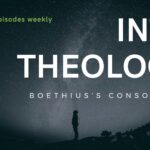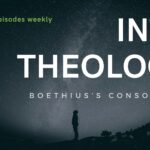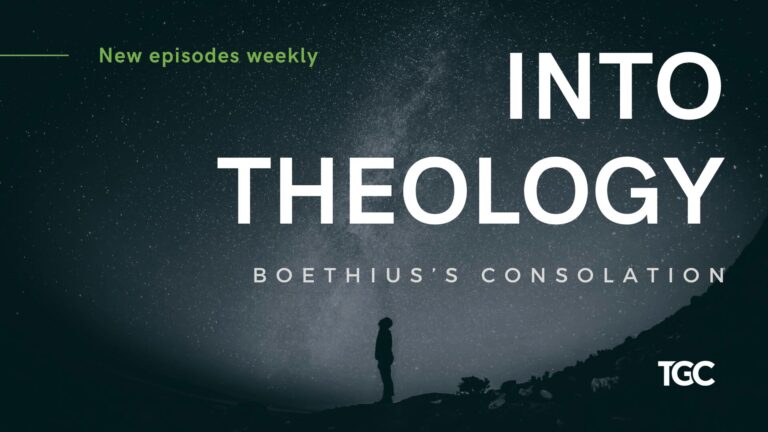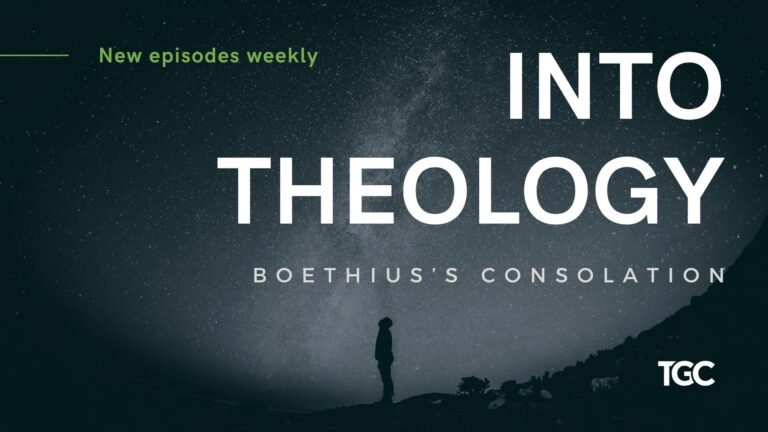God has foreordained and controls all things whatsoever by his mysterious foreknowledge and providence. By definition, the eternal destinies of the elect and non-elect must fall under God’s foreordination and control. Yet Scripture does not directly state that God predestines people to hell. Instead, it continually emphasizes that God elects to eternal salvation.
In light of this emphasis in Scripture, we should attempt to match our thinking to this biblical pattern. This will lead us to emphasize the election of grace and the passing over of some. It will not lead us to emphasize that God predestines people to hell.
Predestination of Grace
The 16th-century Reformer Peter Virmigli wrote: “I separate reprobate from predestined because the Scriptures nowhere (that I know of) call men that are damned predestined” (Virmigli, Pred. 2.14). Is he right?
By looking at the New Testament’s use of the predestination and other like terms, we can discover the answer. In the first place, the Greek word predestine (prooriso) occurs six times in the New Testament and always relate to Christ’s mission or salvation. Acts 4:28 says God predestined the work of Jesus Christ. Romans 8:29 and 30 speak of predestination as part of the chain of salvation that includes calling, justification, and glorification.
1 Corinthians 2:7 refers to predestination with reference to the “secret and hidden wisdom of God,” which leads to our glory. Ephesians 1:5 speaks of predestination for adoption, where Ephesians 1:11 defines it in relation to receiving an inheritance according to God’s purpose.
The three uses of foreknowledge in Scripture likewise refer to Christ’s mission (Acts 2:23; 1 Pet 2:20) or our salvation (1 Pet 1:20). The word elect occurs twenty-eight times in Scripture and always for those whom God saves.
Given the biblical data, Virmigli correctly concludes that Scripture (or at least the New Testament) does not call the damned predestined.
Why Does Scripture Only Speak of Predestining the Saved?
Virmigli grasps the tension here. So he attempts to explain why Scripture speaks as it does. He explains that the benefits of predestination (justification, the good life, glorification) go beyond our natural capacity. In contrast, the things that condemn us are under our power by nature (i.e., sin) while remaining under God’s government (Virmigli, Pred. 2.14).
So God’s predestination refers to God’s salvific gifts of grace because it brings us benefits beyond our natural capacity. Reprobation then refers to the acts that we do according to our natural capacity and which can condemn us.
Reprobation according to Nature
So what is reprobation then? According to Virmigli, “Reprobation is [defined as] the most wise purpose of God by which he has before all eternity constantly decreed, without any injustice, not to have mercy on those whom he has not loved, but passes over them, that by their just condemnation he might declare his wrath towards sins and also his glory” (Virmigli, Pred. 2.15)
Put simply, God passes over some people, allowing them to live and respond according to their natural capacity. This is a hard word.
Yet one we must affirm in the right theological context. God has decreed to let people act according to their nature. If someone chooses to reject God, they have done so according to their nature. God did not coerce or cause them to do so. People choose sin over life.
The contrast is also true: God chooses to share of his plentitude of grace. Moses explains:
For you are a people holy to the LORD your God. The LORD your God has chosen you to be a people for his treasured possession, out of all the peoples who are on the face of the earth. It was not because you were more in number than any other people that the LORD set his love on you and chose you, for you were the fewest of all peoples, but it is because the LORD loves you and is keeping the oath that he swore to your fathers, that the LORD has brought you out with a mighty hand and redeemed you from the house of slavery, from the hand of Pharaoh king of Egypt. (Deut 7:6–8)
God chose Israel for no other reason than he loves them and swore an oath to their fathers. Nothing in Israel merited this love. God simply did love them. And so shared of his plenitude of goodness.
The opposite is also true: God judges people for their wickedness because they are wicked. So Deuteronomy 9:4–5 says:
“Do not say in your heart, after the LORD your God has thrust them out before you, ‘It is because of my righteousness that the LORD has brought me in to possess this land,’ whereas it is because of the wickedness of these nations that the LORD is driving them out before you. Not because of your righteousness or the uprightness of your heart are you going in to possess their land, but because of the wickedness of these nations the LORD your God is driving them out from before you, and that he may confirm the word that the LORD swore to your fathers, to Abraham, to Isaac, and to Jacob.
Reprobation of the Canaanites occurs because they are wicked. Salvation for Israel occurs because God chose to set his love on them.
The first shows God act justly in accordance with human nature which tends towards evil. The second shows God acting graciously by loving and choosing a people for his own possession out of his gracious plentitude of being: “Know, therefore, that the LORD your God is not giving you this good land to possess because of your righteousness, for you are a stubborn people” (Deut 9:6).
Should Christians Say, “God Predestines People to Hell”?
I suggest that we do not because it does not follow the biblical pattern of sound words. And yet Scripture does affirm that God governs all affairs. So human sin does not exist outside of God’s governing providence.
But predestination, election, and calling refer to distinct salvific benefits that God shares with his elect. Scripture does not regularly emphasize the opposite: of predestination to hell, of election to failure, or of calling to sin.
We must grant that God did raise up Pharaoh for his own purposes, and yet Pharoah hardens his heart as often as God hardens it. This demonstrates that Pharaoh acted according to his natural capacity and appetite for evil while God governed his evil actions for his purposes. In this sense, nothing exists outside of God’s control (cf. Rom 9:22).
Yet we must leave mystery mysterious. God is Good. God is Love. And he acts out of the plentitude of his Goodness and Love to give Life. The cause of our condemnation is our sin. Only divine patience and grace prevents the advance of final judgement (2 Pet 3:9, 15; Rom 2:4). God does not cause sin; we do. Instead, God regenerates hearts so that we can experience divine grace that goes beyond our natural capacity.
So affirm predestination by grace. But do not say, “God predestines people to hell” since sin without repentance causes our condemnation. Only free grace saves us from our sins, and that through faith in Christ Jesus who imputes his righteousness to us through the Holy Spirit.












